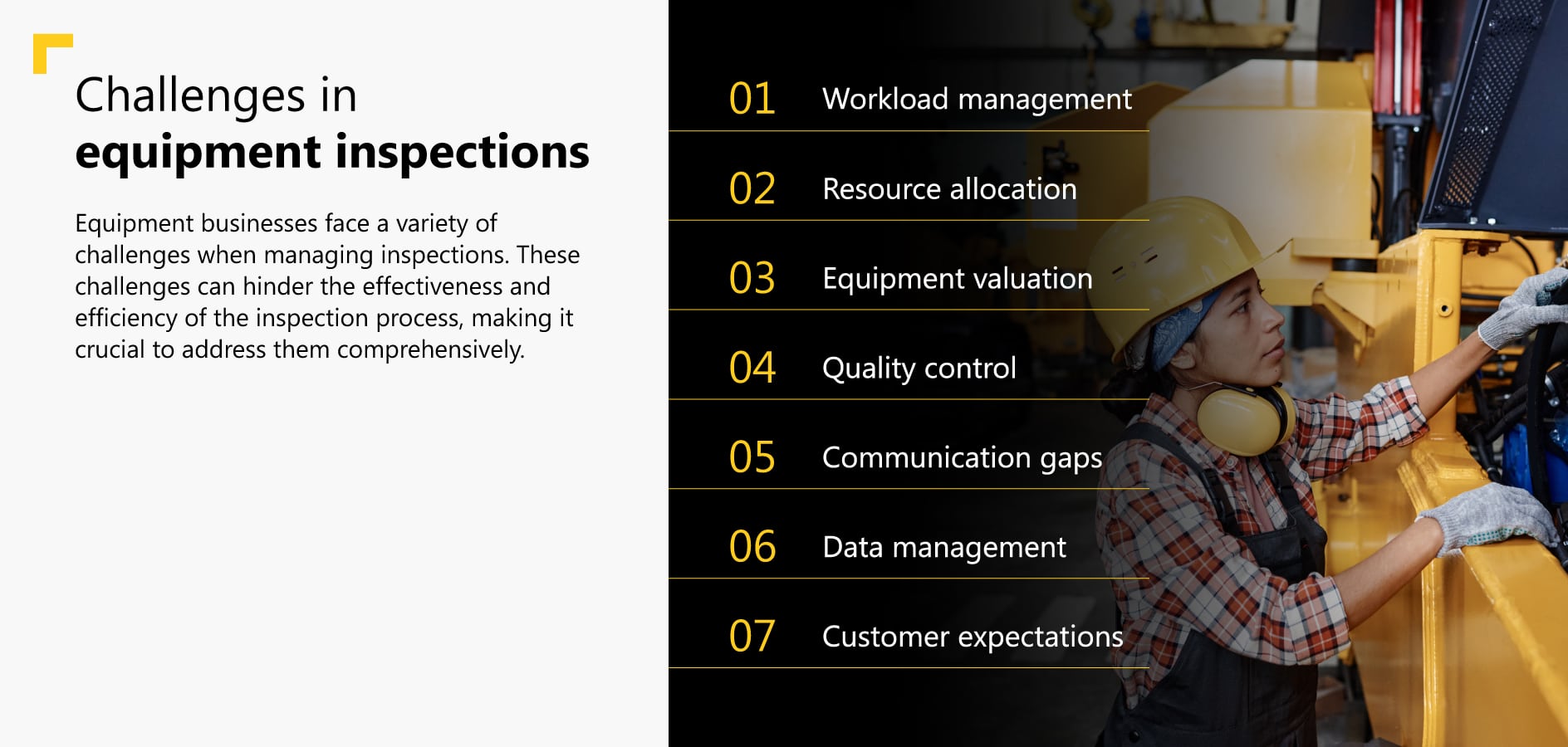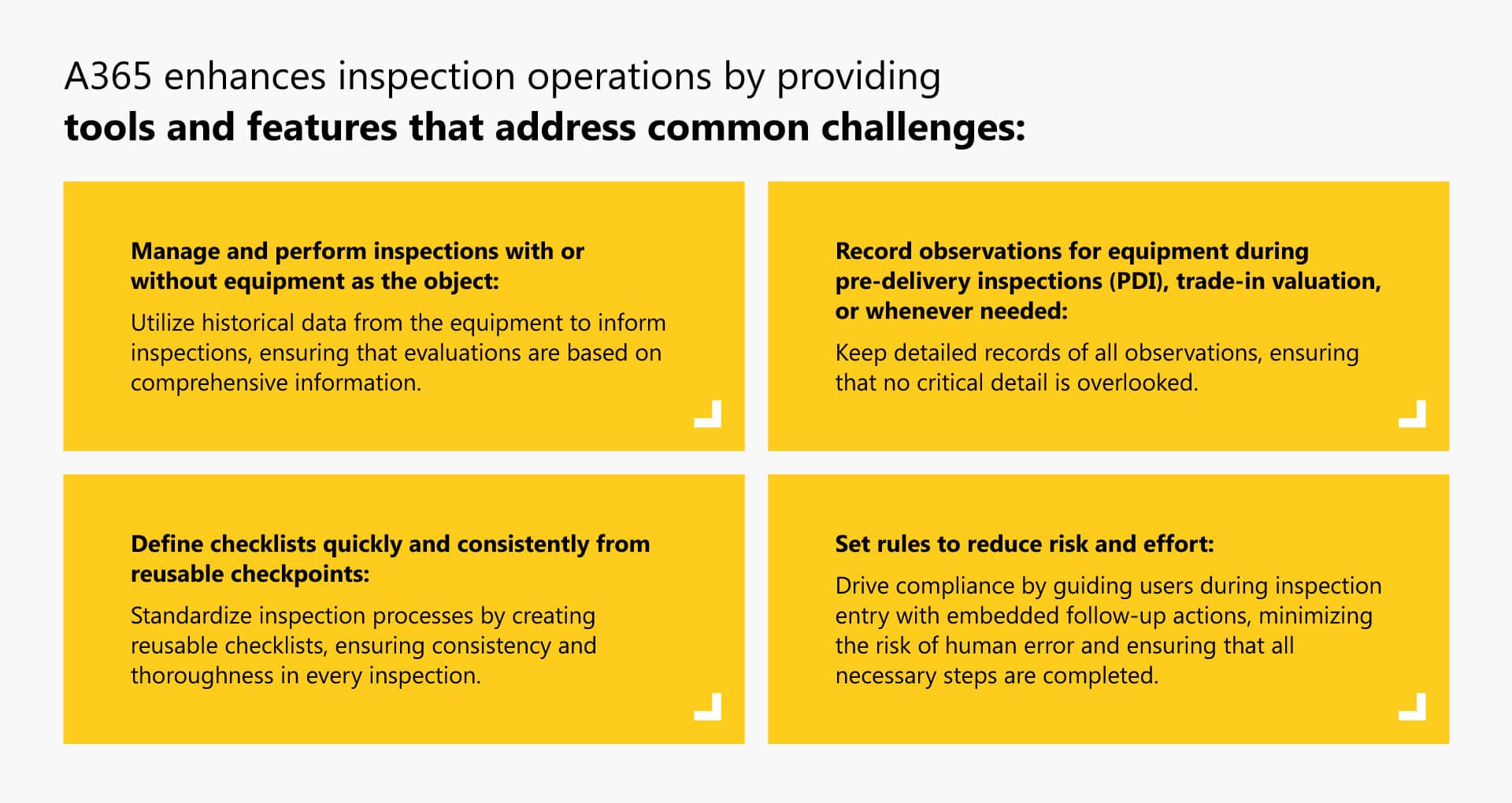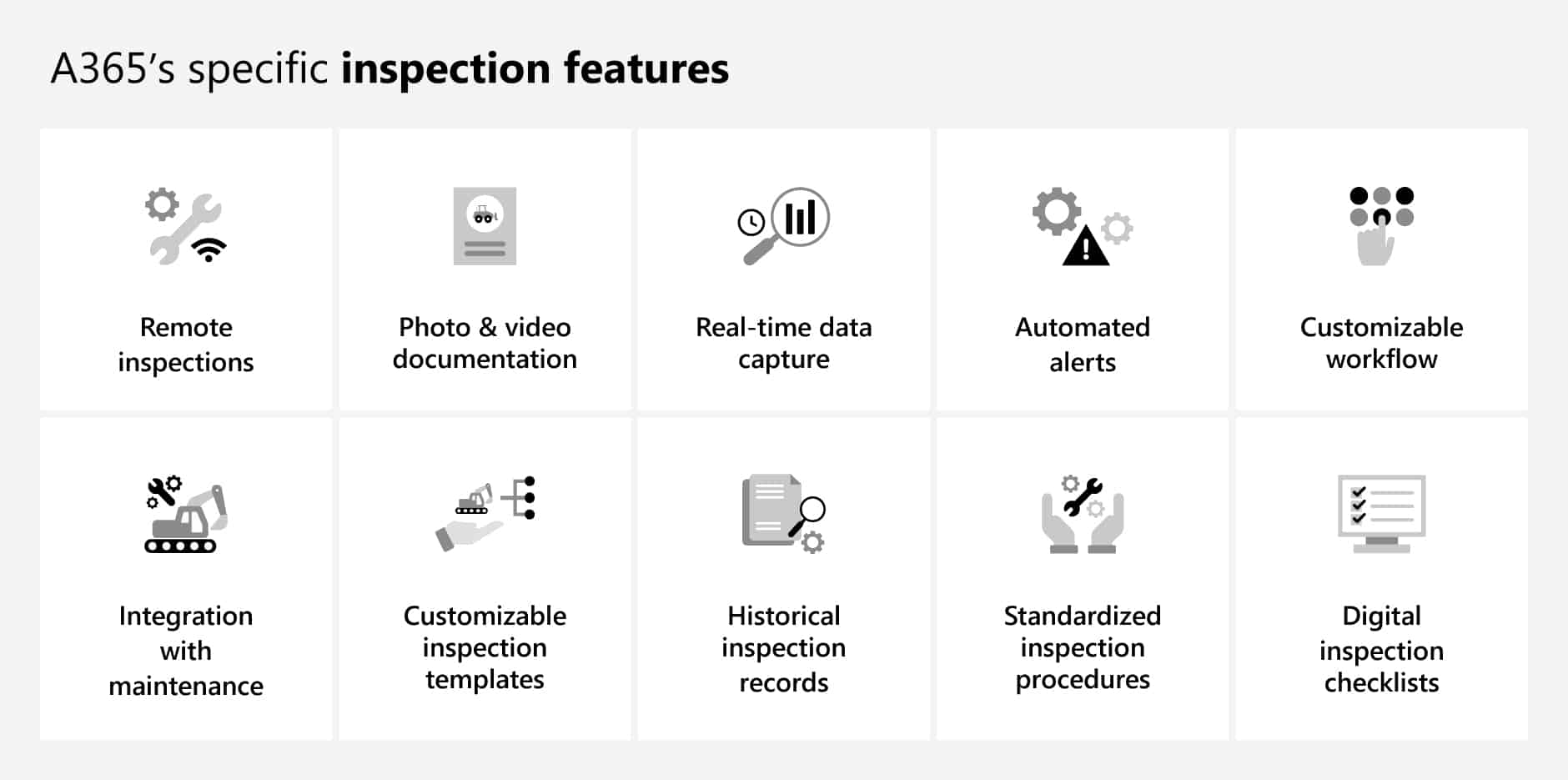The crucial role of inspections in equipment businesses
Inspections are fundamental to the success and longevity of equipment businesses. These regular evaluations ensure that machinery and equipment operate efficiently, safely, and reliably.
It helps identify potential issues before they escalate into costly repairs or replacements, ensuring that operations run smoothly.
Despite their critical importance, it often remains an underappreciated aspect of equipment management. Ignoring or inadequately performing inspections can lead to significant operational disruptions, financial losses, and reputational damage.
However, a robust process can enhance productivity, ensure compliance, and bolster customer satisfaction, making it a decisive factor in the success or failure of an equipment business.
Why inspections go unnoticed
Despite their undeniable importance, inspections frequently go unnoticed for several reasons. One primary reason is the lack of immediate visible issues. Businesses might overlook this because the equipment may appear to be functioning correctly in the short term.
This short-sighted approach can be detrimental in the long run, as undetected problems can worsen over time, leading to unexpected breakdowns and higher repair costs.
Another reason it is often neglected is the perception of them as mundane and time-consuming tasks. In busy operations where time and resources are stretched, inspections might be deprioritized in favor of seemingly more urgent activities.
However, this neglect can result in missed opportunities to improve equipment performance, extend machinery life, and ensure safety.
Moreover, there is sometimes a disconnect between its perceived value and the actual impact on business outcomes. This disconnect can lead to insufficient allocation of resources and attention to the process.
Recognizing its true value can shift this mindset, highlighting the substantial benefits of a well-maintained inspection routine.
Challenges in equipment inspections

Workload management: Balancing schedules with ongoing operational demands can be overwhelming. Without proper planning, it can either become a bottleneck or be rushed, leading to incomplete assessments.
Resource allocation: Ensuring that the right personnel and tools are available for thorough inspections is a significant challenge. Skilled inspectors and specialized equipment are essential for accurate evaluations, but coordinating these resources can be complex.
Equipment valuation: Accurately assessing the condition and value of equipment requires expertise and reliable data. Inconsistent or subjective valuation methods can lead to misinformed decisions regarding repairs, replacements, and investments.
Quality control: Maintaining consistent standards across all operations is vital for ensuring the reliability and safety of equipment. Variability in practices can result in overlooked issues and inconsistent equipment performance.
Communication gaps: Bridging the gap between field inspectors and office staff is essential for effective management. Poor communication can lead to delays, misunderstandings, and incomplete records.
Data management: Efficiently handling and analyzing data is crucial for making informed decisions. Without a robust data management system, valuable insights can be lost, and compliance with regulatory requirements can be compromised.
Customer expectations: Meeting and exceeding customer expectations for equipment reliability and safety is a key business goal. Failing to conduct thorough checks can lead to equipment failures that disappoint customers and damage the business’s reputation.
Addressing inspection challenges with comprehensive solutions
To effectively address these challenges, equipment businesses need an all-encompassing business solution that integrates seamlessly with their operations.
Such a solution should provide functionalities that cater to the end-to-end needs of the business, from management to data analysis and customer communication.
This holistic approach ensures that every aspect of the process is optimized, leading to improved efficiency, compliance, and customer satisfaction.
The power of A365 in inspection management
A365 is a solution tailored specifically to meet the intricate needs of equipment businesses. Built on the robust Microsoft Dynamics 365 backbone and powered by other Microsoft technologies such as the Microsoft Power Platform and Microsoft Copilot plugins, A365 offers unparalleled capabilities in managing inspections.
This powerful combination ensures that businesses can leverage the latest technological advancements to streamline their processes and achieve higher operational efficiencies.
Seamless inspection operations with A365
A365 facilitates the implementation of digital inspection processes, transforming traditional methods into streamlined operations that achieve higher efficiencies. It powers the digital transformation of both online and offline activities, helping businesses drive quality, improve productivity, and reduce costs.
With A365, businesses can seamlessly manage the entire inspection lifecycle, from scheduling and performing checks to analyzing data and communicating results.

A365’s specific inspection features
A365 stands out with its comprehensive set of features tailored for equipment inspections. These features ensure that businesses can manage the entire process efficiently and effectively, leading to improved operational outcomes and enhanced customer satisfaction.

Customizable inspection templates: Easily create and modify templates to suit specific needs, ensuring that each check is tailored to the particular equipment and situation.
Integration with maintenance: Seamlessly integrate vehicle data with maintenance schedules and tasks, ensuring that identified issues are promptly addressed and resolved.
Photo & video documentation: Capture visual evidence for accurate record-keeping and analysis, providing a clear and comprehensive view of the equipment’s condition.
Historical inspection records: Maintain detailed records for reference and compliance, ensuring that all relevant information is readily available.
Customizable workflow: Adapt workflow to match business processes and requirements, ensuring that checks are conducted efficiently and effectively.
Remote inspections: Conduct checks remotely, saving time and resources while ensuring that all necessary evaluations are completed.
Real-time data capture: Capture and analyze data in real-time for immediate insights, enabling prompt decision-making and action.
Automated alerts: Set up automated alerts for schedules, maintenance needs, and compliance issues, ensuring that nothing is overlooked.
Standardized inspection procedures: Ensure consistency with standardized procedures, maintaining high-quality standards and reducing variability.
Digital inspection checklists: Use digital checklists to streamline the entire process and ensure no step is overlooked, enhancing efficiency and accuracy.
In conclusion, inspections are a critical element in the success of equipment businesses. A comprehensive solution like A365, built on the powerful Microsoft Dynamics 365 framework, can transform your operations, ensuring efficiency, compliance, and customer satisfaction.
By leveraging A365’s advanced features, equipment businesses can overcome their challenges and drive operational excellence, positioning themselves for long-term success in a competitive market.
Learn more about this in our factsheet and connect with us today for a personalized session to address your inspection-related challenges.












